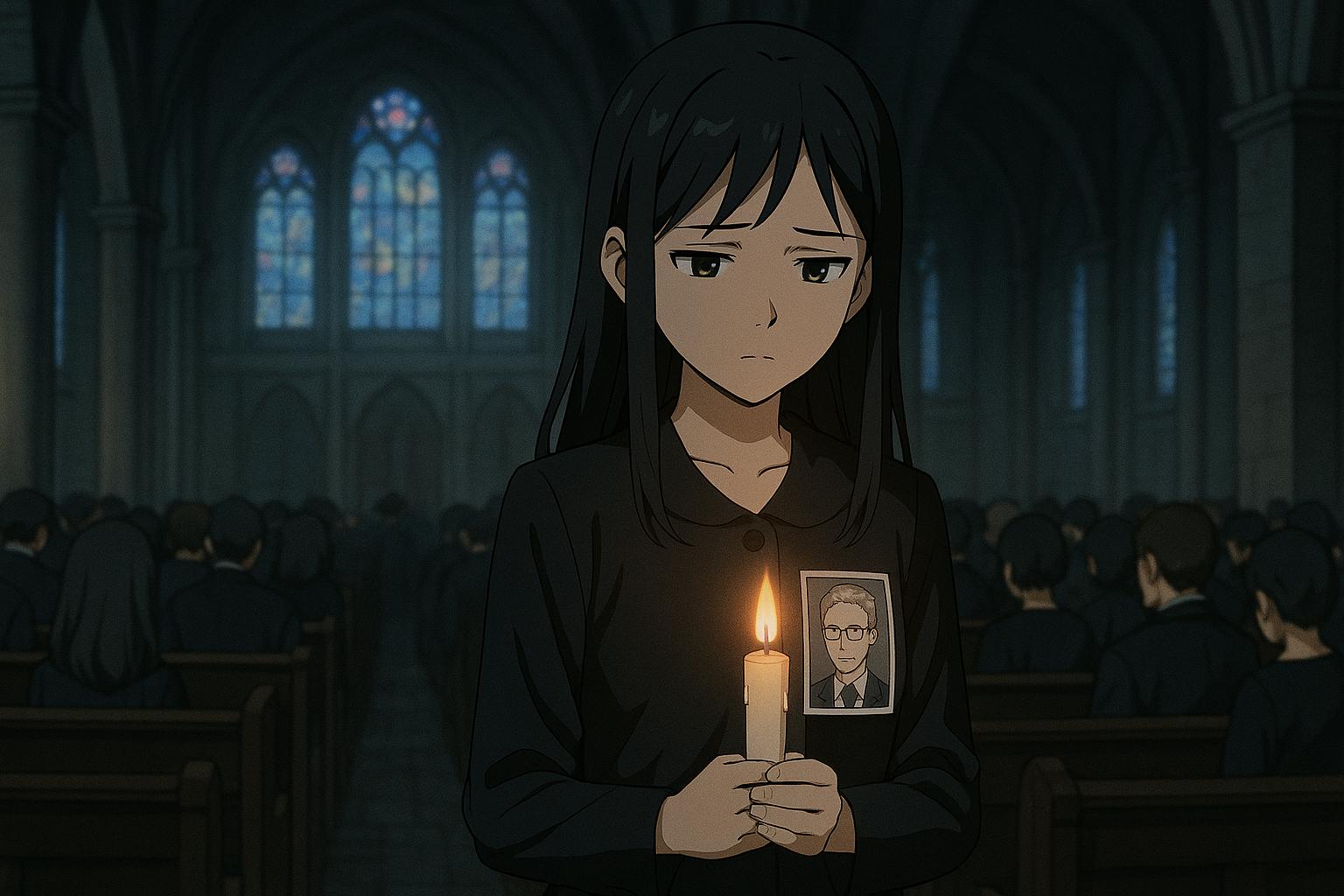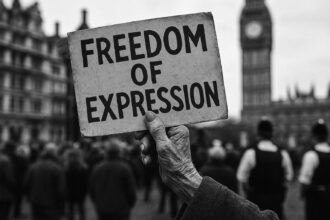As more than 10,000 representatives gather for the Southern Baptist Convention in Dallas, the recent death of whistleblower Jennifer Lyell highlights ongoing turmoil over the church’s handling of sexual abuse and the challenges of meaningful reform within the denomination.
More than 10,000 church representatives have gathered in Dallas for the annual meeting of the Southern Baptist Convention (SBC), which commenced with praise sessions and reports indicating an increase in baptisms. However, this year’s event is overshadowed by the tragic death of Jennifer Lyell, a prominent whistleblower in the SBC’s sexual abuse scandal. Lyell, a former denominational publishing executive, passed away at the age of 47 after suffering catastrophic strokes. Rachael Denhollander, a friend and advocate for abuse survivors, shared the news of Lyell’s passing on social media, noting the devastating impact the backlash had on her mental and emotional health following her revelation of abuse by a seminary professor.
Lyell’s case underscores a deep-seated crisis within the SBC regarding its handling of sexual abuse. Her public accusations in 2019 initially prompted a mischaracterisation by the convention’s news service, which portrayed her ordeal as a “morally inappropriate relationship,” rather than an instance of sexual abuse. This portrayal not only misled the public but also resulted in severe emotional and professional repercussions for Lyell. Over the years, numerous advocates for reform have either opted not to attend the convention or expressed their frustrations outside the main venue, holding vigils in honour of Lyell and other victims like Gareld Duane Rollins, who also suffered mistreatment from church authorities.
The SBC Executive Committee has attempted to address the issues identified in a damning report released last year, which detailed a history of mishandled abuse cases and an institutional inertia in effecting real change. The committee offered a public apology and a financial settlement to Lyell, acknowledging its failure to protect her when she came forward. However, reform advocates are increasingly critical of the executive’s decision to deprioritise the creation of a comprehensive database to track church workers accused of sexual abuse, suggesting that merely directing churches to existing sex offender registries and promoting prevention education is insufficient.
As the SBC grapples with these issues, discussions are likely to centre around several contentious resolutions. Attendees will consider resolutions that advocate for the reversal of same-sex marriage rights, reaffirm traditional views on marriage, and propose bans on women’s pastoral roles. Brent Leatherwood, president of the SBC’s Ethics and Religious Liberty Commission, expressed confidence that delegates would support measures aimed at preserving a conservative voice within the public sphere, though the prevailing sentiment among reform advocates suggests a growing frustration with the SBC’s approach to both internal governance and the handling of abuse allegations.
The juxtaposition of Lyell’s tragic death against the backdrop of this significant gathering highlights a tense moment within the SBC, one marked by earnest calls for reform but continual struggles to implement meaningful changes. This dissonance illustrates the ongoing divide between the leadership’s assurances and the experiences of survivors who demand accountability and justice within the institution.
 Reference Map:
Reference Map:
- Paragraph 1 – [1], [2]
- Paragraph 2 – [1], [3], [5]
- Paragraph 3 – [4], [6]
- Paragraph 4 – [1], [2], [6]
- Paragraph 5 – [1], [2], [7]
- Paragraph 6 – [2], [3], [4]
Source: Noah Wire Services
- https://www.independent.co.uk/news/dallas-whistleblower-friends-rachael-denhollander-b2767565.html – Please view link – unable to able to access data
- https://apnews.com/article/8ebb5246978918f46d243d6ce2d9f4a5 – At its annual meeting in Dallas, the Southern Baptist Convention (SBC) passed a resolution calling for the reversal of laws and court rulings supporting same-sex marriage, including the 2015 Supreme Court decision Obergefell v. Hodges. The resolution affirms marriage as between one man and one woman and advocates for legislation based on biblical principles concerning marriage, gender identity, and childbearing. The meeting was overshadowed by the recent death of sexual abuse whistleblower Jennifer Lyell, whose public accusations against a seminary professor and subsequent mistreatment by denominational officials highlighted ongoing abuse controversies within the SBC. Advocates criticised the SBC’s slow implementation of reforms following a 2022 report on mishandled abuse cases. The Executive Committee has shifted focus from creating a pastor abuse database to directing churches to existing registries and prevention education, drawing criticism from survivors and their advocates. Attendees are also expected to debate the roles of women pastors and the future of the denomination’s public-policy arm.
- https://religionnews.com/2022/02/22/southern-baptist-executive-committee-agrees-to-a-resolution-with-jennifer-lyell/ – Southern Baptist leaders announced they had reached a resolution with Jennifer Lyell, a sexual abuse survivor whose story was mishandled when she came forward in 2019. Lyell, a former publishing executive for Lifeway Christian Resources, alleged she had been sexually abused by a seminary professor. The abuse was initially characterised as a ‘morally inappropriate relationship’ by Baptist Press, leading to significant personal and professional repercussions for Lyell. The SBC Executive Committee acknowledged its failure to adequately listen, protect, and care for Lyell when she came forward and apologised for the harm caused. The committee also acknowledged Baptist Press’s inaccurate reporting and the failure to clarify that Lyell’s allegations of nonconsensual sexual abuse were investigated and corroborated by SBC entities with authority over her and her abuser.
- https://www.kpbs.org/news/national/2022/02/22/southern-baptist-leaders-apologize-to-sex-abuse-survivor – The Southern Baptist Convention’s Executive Committee offered a public apology and a confidential monetary settlement to sexual abuse survivor Jennifer Lyell, who was mischaracterised by the denomination’s in-house news service when she decided to go public with her story in March 2019. The committee announced the resolution during their meeting in Nashville, marking the latest chapter in a saga that has raised questions about the handling of sexual abuse in the nation’s largest Protestant denomination. In addition to a public apology, Lyell also received a financial settlement of an undisclosed amount, according to the committee’s interim legal counsel.
- https://baptistnews.com/article/caring-well-speaker-says-baptist-press-reported-abuse-disclosure-as-a-consensual-affair/ – Rachael Denhollander, a speaker at the Caring Well conference, stated that Baptist Press, the Southern Baptist Convention’s official news service, misrepresented Jennifer Lyell’s disclosure of sexual abuse as a ‘morally inappropriate relationship’ rather than acknowledging it as sexual abuse. Denhollander highlighted that Baptist Press reworded Lyell’s statements, implying an adulterous affair, which led to significant personal and professional repercussions for Lyell. The misrepresentation by Baptist Press was part of a broader pattern of mishandling sexual abuse cases within the SBC, raising concerns about the denomination’s commitment to protecting survivors and addressing abuse allegations appropriately.
- https://spectrumlocalnews.com/tx/dallas-fort-worth/ap-online/2022/02/23/southern-baptist-leaders-apologize-to-sex-abuse-survivor – The Southern Baptist Convention’s Executive Committee offered a public apology and a confidential monetary settlement to sexual abuse survivor Jennifer Lyell, who was mischaracterised by the denomination’s in-house news service when she decided to go public with her story in March 2019. The committee announced the resolution during their meeting in Nashville, marking the latest chapter in a saga that has raised questions about the handling of sexual abuse in the nation’s largest Protestant denomination. In addition to a public apology, Lyell also received a financial settlement of an undisclosed amount, according to the committee’s interim legal counsel.
- https://baptistnews.com/article/sbc-report-shows-how-five-words-turn-abuse-victim-from-survivor-to-whore/ – A report by the Southern Baptist Convention (SBC) revealed how a misrepresentation of Jennifer Lyell’s abuse disclosure by Baptist Press, the denomination’s news service, led to her being labelled as a ‘whore’ rather than being recognised as a survivor. The report highlighted that the misrepresentation caused significant harm to Lyell, including physical and emotional distress that required medical treatment. The SBC’s mishandling of Lyell’s case underscores broader issues within the denomination regarding the treatment of abuse survivors and the need for systemic reforms to protect and support victims.













